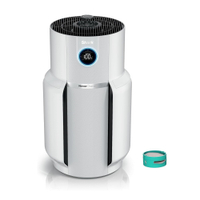Air purifiers vs humidifiers – what do they do, and which one do I need?
Air purifiers and humidifiers are drastically different appliances but ultimately serve the same purpose: improving our indoor air quality. Find out how they differ
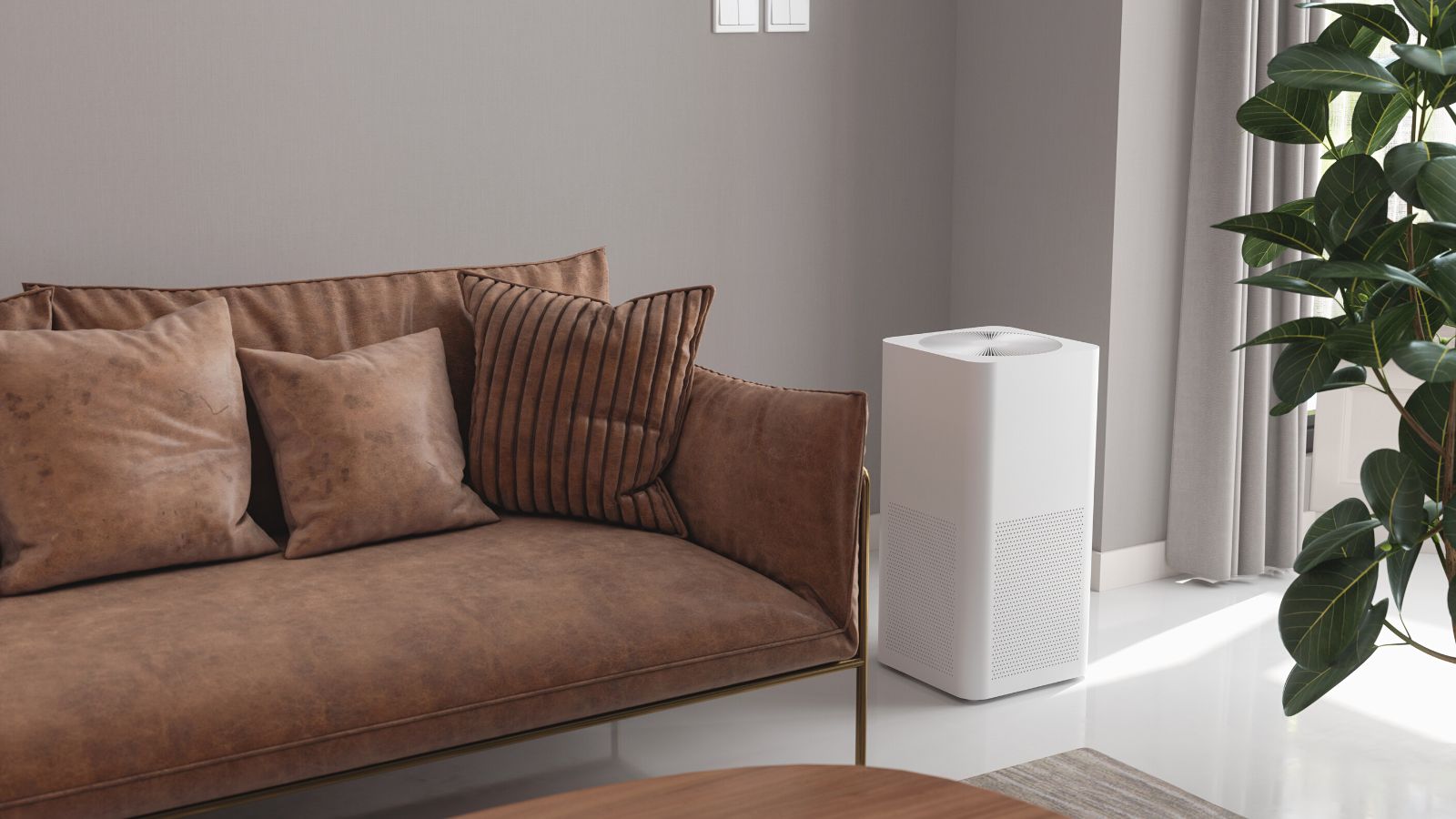
Like it or not, indoor air quality significantly impacts our health and comfort, making air purifiers and humidifiers essential appliances for many homes. While both devices can enhance the quality of the air we breathe, they serve different functions and are suited to different needs.
Both the best air purifiers and humidifiers can improve indoor environments but in their own ways. Air purifiers focus on removing pollutants from the air, while humidifiers add moisture to the air.
As H&G's home tech editor, I've tested plenty of these home air quality appliances. So, with the help of a couple of experts, I explore the differences between air purifiers and humidifiers and delve into the unique benefits each device offers.
Air purifiers vs humidifiers
To help with your indoor air quality, we delve into what air purifiers and humidifiers can do for your home, where they differ, and whether you need one.
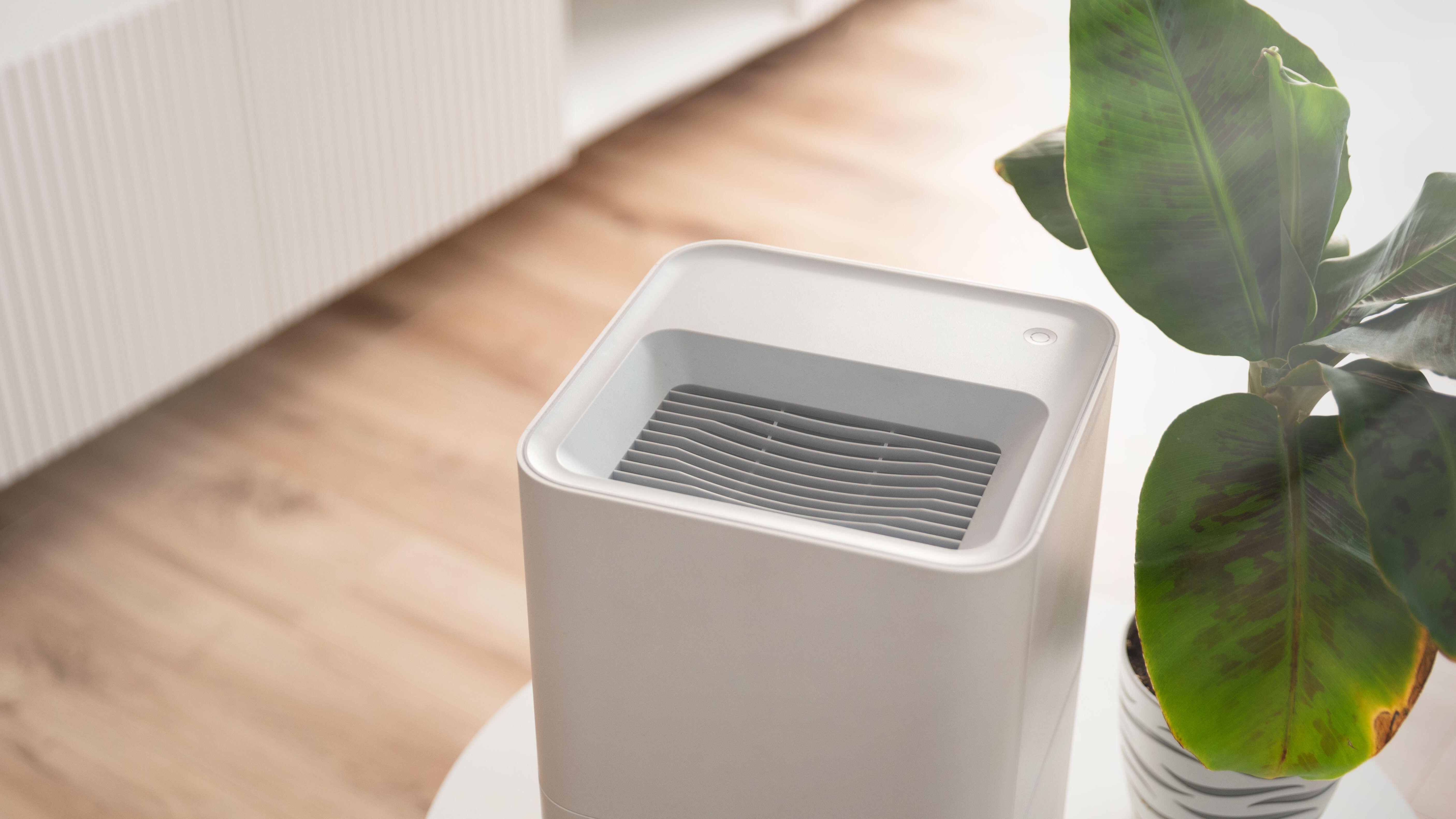
Air purifiers vs humidifiers: What's the difference?
Air purifiers are designed to remove contaminants from the air. They typically use mechanical filters (like HEPA filters) and carbon filters, to capture particles like dust, dander, pollen, smoke, and volatile organic compounds (VOCs).
As Helen Christoni, senior vice president at Ideal Living, explains, 'a good air purifier uses a combination of Ultra-HEPA and carbon block filters that filter out unwanted particles, VOCs, and contaminants.'
These devices work by drawing air into the unit, passing it through the filters, and then releasing the purified air back into the room. As particles are trapped inside the machine during this process, air purifier filters need regular replacements, typically around every six months.
Different air purifiers boast different particulate size performances. HEPA filters, by their standard, must be able to capture particles as small as 0.3 microns, but many air purifiers from brands like Dyson, Molekule, and Shark can trap even smaller particles.
In contrast, humidifiers add moisture to the air by releasing water vapor or steam. They're helpful in dry climates or during winter months when indoor air can become particularly dry as a result of us using our heaters more.
As Terry Turner, an award-winning researcher specializing in consumer health products and safety, notes: 'Humidifiers add moisture to the air, making it less dry. They help with conditions like dry skin, throat, and nosebleeds.'
Humidifiers come in various types, including evaporative, ultrasonic, and steam vaporizers. They work by using a water reservoir (that the user typically fills up themselves) and a mechanism to disperse moisture into the air, either through a fan or ultrasonic vibrations.
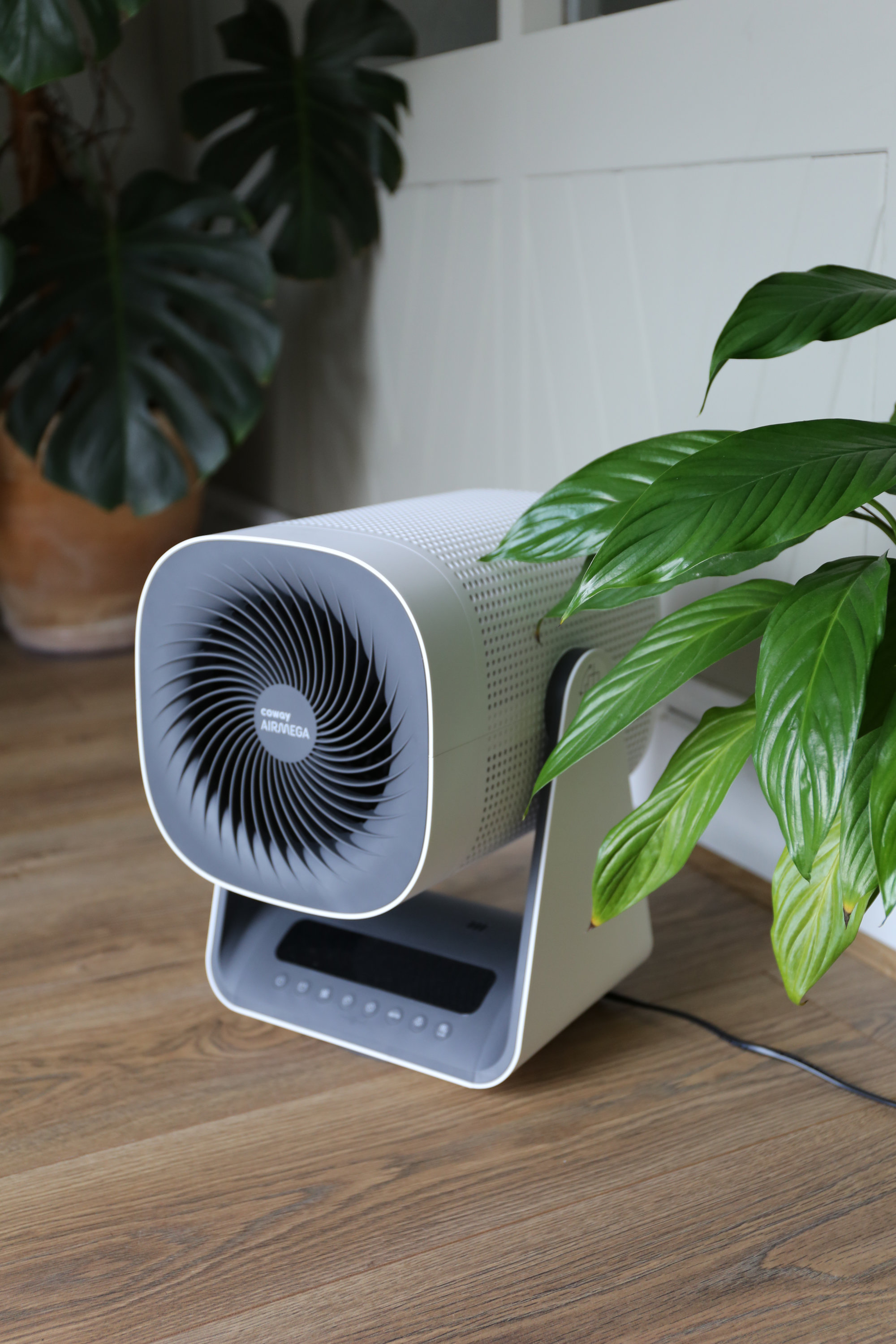
The benefits of air purifiers
Air purifiers offer several advantages, especially for those concerned about indoor air pollutants and allergens.
Harmful particles
High-quality air purifiers can filter out harmful particles as small as .003 microns, including VOCs and smoke particles. This is particularly important for maintaining a healthy indoor environment, especially in areas with high pollution levels.
Air quality
Continuous use of air purifiers helps to maintain a high standard of indoor air quality, ensuring your home's air stays free from harmful particles and pollutants. It's actually one of the most effective ways of improving indoor air quality when living in a city.
This is particularly useful in summer when our open windows invite pollutants from the outdoors into our homes. Smoke, pollen and a whole load of other harmful particles can circulate throughout our houses, so air purifiers can make sure our home's air stays clean.
Allergens & irritants
Air purifiers effectively remove common allergens such as pollen, pet dander, and dust mites from the air. This can significantly reduce allergy symptoms and improve overall respiratory health (as an asthma and allergy sufferer, I can attest to this myself).
We've written already on how air purifiers help with allergies and with dust. Helen Christoni emphasizes, 'air purifiers remove contaminants, alleviating allergies and asthma symptoms and can help people sleep better.'
Sleep quality
By removing allergens and other irritants, air purifiers can create a cleaner and more comfortable sleeping environment, helping us sleep better, breathe better and wake up feeling more well-rested.
Shark NeverChange Air Purifier MAX | $299.99 at Shark
This is currently our favorite among all the best air purifiers we've tested. It has prefilters, protecting the HEPA filter from needing replacing for 5 years. It has a huge 1,400 square-foot coverage, and the HEPA filter's performance exceeds standards.
The benefits of humidifiers
Humidifiers combat dry indoor air, creating a healthier and more comfortable life at home.
Dry skin
Low humidity levels can cause dry skin, chapped lips, and other skin irritations, so humidifiers can prevent this by adding moisture to the air. There are optimal humidity levels for our bodies: in summer, 50-60% can be ideal, while in winter 30-40% is preferred.
Health & breathing
As Terry Turner states, 'using a humidifier can alleviate symptoms of colds, flu, and allergies, reducing congestion and sinus irritation.' Maintaining a general humidity level of 30-60% can reduce the problem of microbes that cause sickness.
Dry air can also cause nosebleeds and a dry throat. Humidifiers help maintain a comfortable humidity level, preventing these issues and promoting overall respiratory health.
Comfort
In areas with dry climates, humidifiers can make indoor environments more comfortable by maintaining optimal humidity levels, thus enhancing overall living conditions.
Both air purifiers and humidifiers serve vital roles in improving indoor air quality, but they cater to different needs. Air purifiers are essential for removing pollutants and allergens from the air, making them ideal for those with allergies or respiratory issues. On the other hand, humidifiers add necessary moisture to the air, preventing dryness-related problems and improving comfort in dry conditions.
As Helen Christoni highlights, using both devices together can ensure a balanced and healthy home environment, particularly if you experience both dry and polluted air.
But before investing in one of the best air purifiers, make sure you know how to choose the right air purifier for your home and lifestyle.
Sign up to the Homes & Gardens newsletter
Design expertise in your inbox – from inspiring decorating ideas and beautiful celebrity homes to practical gardening advice and shopping round-ups.

Dan is the Home Tech Editor for Homes & Gardens, covering all things cleaning, smart home, sound and air treatment across the Solved section. Having worked for Future PLC since July 2023, Dan was previously the Features Editor for Top Ten Reviews and looked after the wide variety of home and outdoor content across the site, but their writing about homes, gardens, tech and products started back in 2021 on brands like BBC Science Focus, YourHomeStyle and Gardens Illustrated.
They have spent more than 200 hours testing and reviewing vacuums for Homes & Gardens, and have even visited Dyson's engineering labs for the full low-down of the ins and outs of our trusty cleaners.
Dan has a BA in Philosophy and an MA in Magazine Journalism. Outside of work, you'll find them at gigs and art galleries, cycling somewhere scenic, or cooking up something good in the kitchen.
-
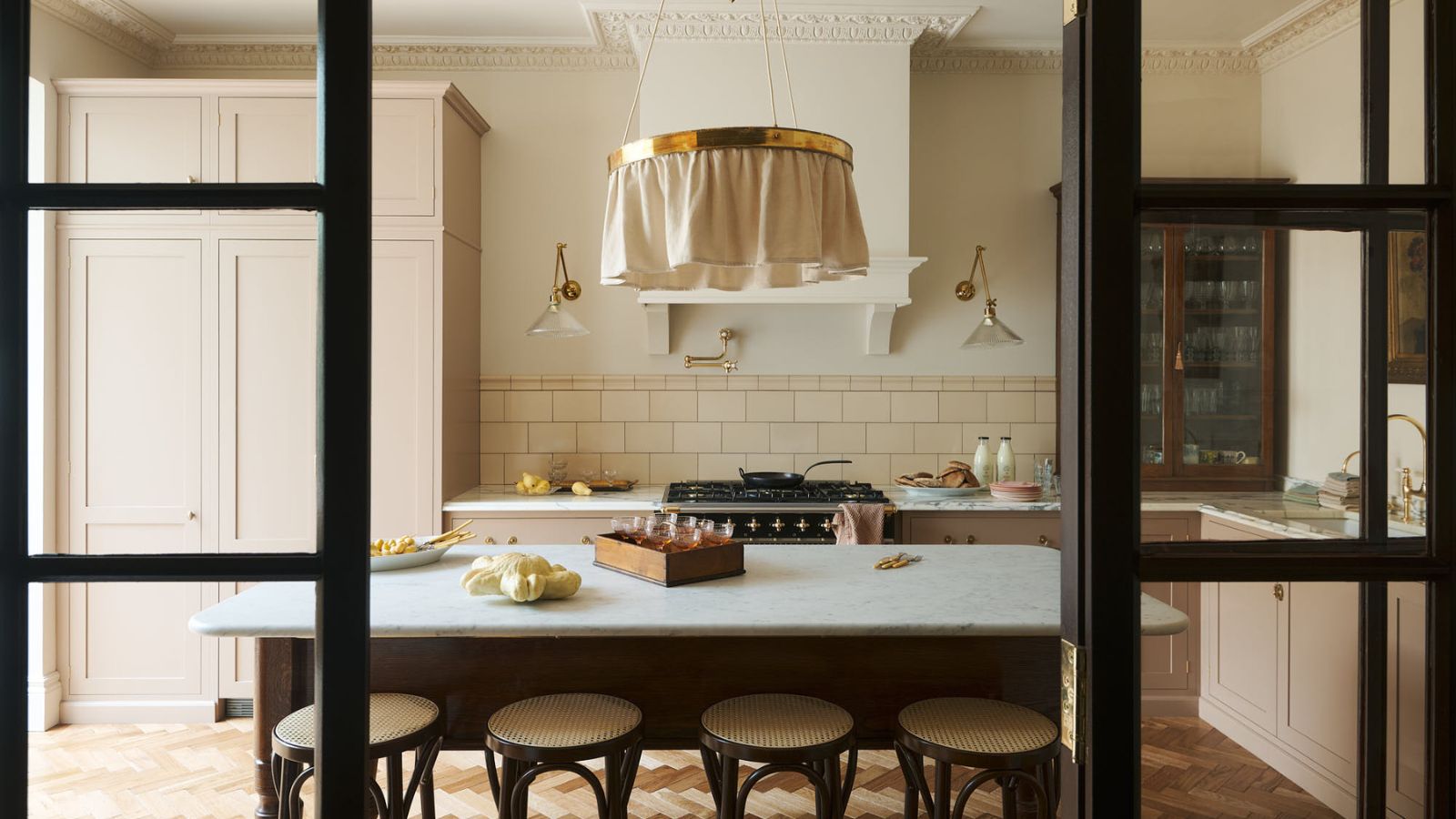 I tried this one easy dishwasher trick and made the annoying need for manual drying a thing of the past
I tried this one easy dishwasher trick and made the annoying need for manual drying a thing of the pastIf you hate those little pools of water left on your cups and crockery, this towel trick is for you
By Punteha van Terheyden
-
 Renovation Aloha's Tristyn and Kamohai Kalama share the front color you need to sell your home – they explain, 'it's one of the areas you can go a little bolder'
Renovation Aloha's Tristyn and Kamohai Kalama share the front color you need to sell your home – they explain, 'it's one of the areas you can go a little bolder'In Homes & Gardens' exclusive interview with the Kalamas, they explain the renovations to make to the front of your home for property value
By Sophie Edwards
